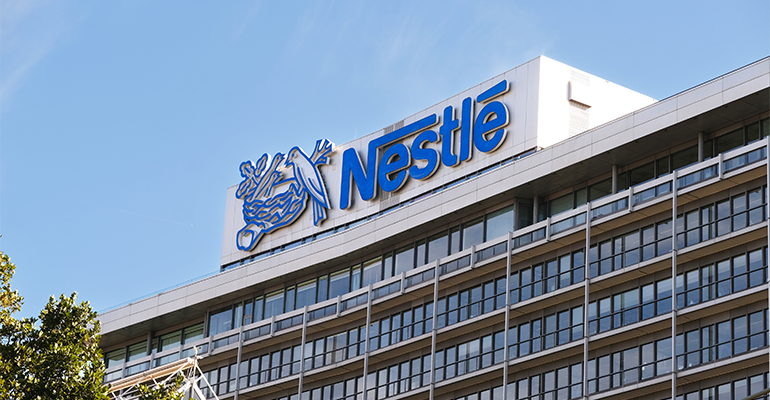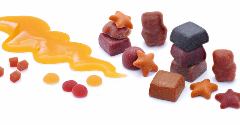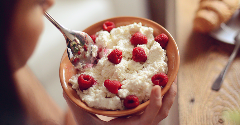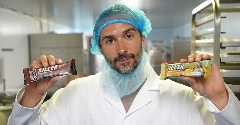News
Nestlé improves nutrition reporting as pressure grows on other food and beverage companies
16 May 2025Nestlé has urged other major food manufacturing businesses to improve their reporting on the nutritional value of their products.
The owner of Cheerios, Häagen-Dazs, and Nesquik has just announced changes to its own reporting.

The changes include complementing its existing reporting with “new data” aligned with the scope of the ATNi (the Access to Nutrition initiative) as well as a “sales-weighted average measure both for relevant categories, and for the total portfolio”.
Nestlé will also continue to use the government approved health star rating (HSR) system as the basis of its nutrition profile reporting.
Nestlé has come under pressure from ShareAction, an NGO pushing for ‘responsible investment’, which accused the world’s largest food company of not following HSR. In April 2024, a coalition of Nestlé shareholders from five institutional investors, with $1.68tn (£1.35tn) in assets under management filed a resolution challenging Nestlé to dramatically improve its impact on people’s health.
The company “erroneously” counted coffee as a healthier food in its disclosure, a significant and fast growing (more than 25%) part of its portfolio, ShareAction wrote in a briefing last year.
“According to the HSR methodology, coffee should not be counted as it has no nutritional value. This has contributed to an inflated score for Nestlé that is incomparable with peers such as Unilever and Danone UKI, both of which have disclosed their scores transparently,” the group added in the 2024 health resolution for shareholders.
The changes announced in April 2025 mean Nestlé will continue to report separately on its specialised nutrition, pet care, and pure coffee product ranges, but it will also provide a breakdown of the healthiness of its remaining sales, in line with ATNi guidelines.
Company CEO Laurent Freixe said: “We have one of the industry’s broadest portfolios – a strength that provides value to both consumers and investors. This is why we will continue to include our specialised nutrition, petcare, and pure coffee ranges in our reporting as they represent more than half of our sales. These categories make important nutritional contributions but are not included in the ATNi scope,” he added.
‘Powerful message’ to Coca-Cola, PepsiCo, and Mondelēz
According to Nestlé’s non-financial statement 2024, products with a health star rating of 3.5 and above made up 38% of Nestlé’s net sales in 2024 without pet care and non-food products, compared to 30% with these categories included. The more stars, the healthier the product.
ATNi said Nestlé’s move “represents a welcome and important step toward greater accountability in the food sector. By introducing a sales-weighted average healthiness score (based on the health star rating system) at both the portfolio and category levels, the company improves transparency and allows for better assessment of its product offerings”.
Garance Boullenger, healthy markets initiative lead at ShareAction, said the KitKat owner had sent a “powerful message” while “other companies such as Coca-Cola, PepsiCo, and Mondelēz are dragging their feet on taking responsibility for their role in the global health crisis.”
Nestlé boss Freixe said he “hopes other companies in the food industry will consider following our lead”.
The pressure is unlikely to let up on any of the major food companies. ShareAction continues to push Nestlé to set a target to increase the proportion of its sales that come from healthier products.
To align fully with ATNi’s expectations for responsible nutrition reporting, Nestlé would need to set such a target to increase the share of healthier products sold and reduce sales of less healthy products.
There would also need to be greater transparency on reduction of ‘nutrients of concern’, (sugar, sodium and saturated fat), the company would have to show progress on front-of-pack labelling and use of nutrition or health claims, and adhere fully to the WHO code on marketing of breast-milk substitutes.
In November, the fifth edition of the Global Access to Nutrition Index, assessing the world’s 30 largest food and beverage manufacturers and over 52,000 products, showed that more companies are setting targets to improve their portfolio healthiness, using internationally recognised nutrient profiling models (NPMs) to classify products as ‘healthier’.
The estimated sales values of company’s healthier products have also increased, but product portfolio healthiness was found to be lowest in low-income countries. There has also been “little to no improvement in key metrics such as healthiness of product portfolios”, said ATNi.
Related news

How younger consumers are redefining ingredient choices and rejecting brand loyalty
18 Nov 2025
Gen Z and millennial consumers’ preferences for transparency, functionality, and purpose are “redefining the very nature of consumption itself”, says SPINS.
Read more
Hybrid formats and flexible positioning to disrupt category norms in 2026
17 Nov 2025
Trend forecasters expect food and drink to move more fluidly across occasions, functions, and formats as consumers seek versatility, novelty, and convenience.
Read more
Empowering innovation in fortification and colouration
13 Nov 2025
Divi’s Nutraceuticals offers a large portfolio of innovative, high-quality ingredients for foods, beverages, and supplements, with bespoke solutions and expert support for product success.
Read more
From fruit to functional solutions: Meet Paradise Fruits at Fi Europe in Paris
13 Nov 2025
Paradise Fruits Solutions and Paradise Fruits Health will showcase their combined expertise in delivering innovative, fruit-based solutions to the food and beverage industry at the upcoming Fi Europe trade show (2-4 December 2025, Paris).
Read more
New UPF standard hoped to offer consumers ‘coherence and clarity’
10 Nov 2025
Ingredients companies are being urged to enter “a new era of partnership and innovation” following the launch of the industry’s first non-UPF verification scheme.
Read more
Cottage cheese makes a comeback as consumers call for cleaner labels
6 Nov 2025
From ice cream to dips and ready meals, cottage cheese is experiencing a renaissance as a high-protein, clean ingredient for health-conscious consumers.
Read more
Ingredient quantities mislabelled on popular protein bars, independent tests show
5 Nov 2025
Some popular protein bars contain more fat, carbs, and/or sugars than claimed on their labels, independent nutrition testing reveals.
Read more
Does promoting protein content push up plant-based sales?
27 Oct 2025
Promoting the protein content of meat-free products is a more effective sales strategy than adding carbon labels, a study of UK bakery chain Greggs suggests.
Read more
Agrigum Redefined FIBER
27 Oct 2025
Agrigum has transformed gum acacia into a natural, science-backed fibre that supports gut health, sustainability, and innovation across global food and nutrition applications.
Read more
Will Wicks’ Killer Bar harm the protein bar category?
23 Oct 2025
Joe Wicks’ deliberately dangerous protein bar is fuelling anti-UPF sentiment – but there are concerns that his messaging is misguided and could have unintended consequences.
Read more